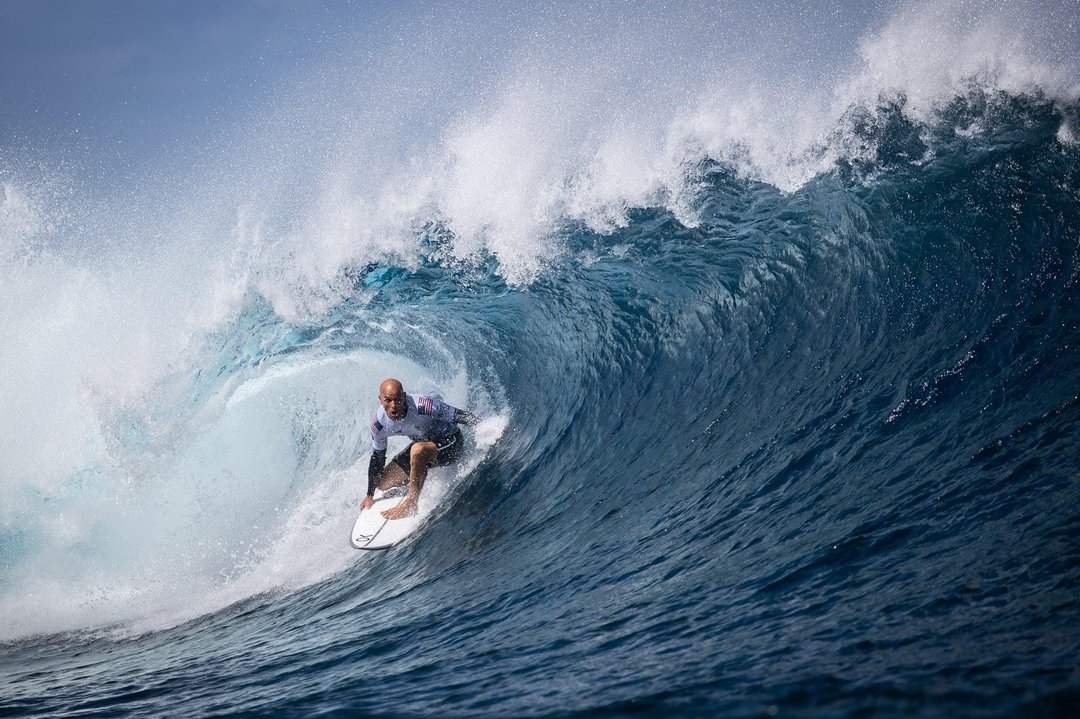
Aytekin Tank
Sept. 15, 2023
I imagine that to just about everyone, running a half marathon represents a challenge, but tackling a half marathon above the Arctic Circle while barefoot sounds akin to a superhuman feat. But for Dutch extreme athlete Wim Hof, aka the "Iceman," such a remarkable endeavor was just another ticked item on an already extraordinary to-do list — one that includes submerging himself in ice for nearly two hours and climbing Mount Kilimanjaro in shorts and sandals. Hof also holds a whopping 26 Guinness World Records.
What makes this remarkable life possible?
One answer is that Hof learned to embrace the cold and its healing effects at a young age. As he told The Guardian, he jumped into a canal in Amsterdam at age 17, and briskly (pun intended) thought, "This is it!" He also believes in the power of mind over matter.

Getty Images
"You just need to change the paradigm," he explained, "and that paradigm is the power of your mind. I'm able to show within brain scans how, just by thought, I make my skin temperature not go down while being exposed to stressful, cold water. That is dealing with physical stress just by the intention of my mind."
Hof's abilities may be exceptional, but I think entrepreneurs and others in search of renewed or boosted productivity can take important lessons from him and other extreme athletes — including ostensibly subtle mind shifts that nevertheless have an oversized impact.
As the founder of the company Jotform, I've found that there are parallels between entrepreneurs and athletes like these who operate at the margins, not least that both seek new experiences, are risk-takers and are driven by a singular vision.
In doing a study of such athletes, I've found some effective strategies for boosting focus and productivity. Importantly, they don't just address how to do more , but rather how to do more of the things that truly matter to a career and business, or as I like to call them, the "big stuff."
Pursue passions obsessively
Kelly Slater has won the title of World Surf League Champion a record 11 times and is arguably the greatest surfer who ever lived. Unsurprisingly then, many up-and-comers look to him for guidance, and during an interview with GQ , he shared advice given to a younger competitor.
"I don't know anyone in the world who is becoming the best at something without being obsessive, because they love it. My advice to this kid was to just know exactly what you wanna do and really, truly believe you can do it — not even that you can do it, that you're going to do it. You just figure out a way to make it happen, and once you know the end goal, you can figure out how to get there."
I couldn't agree more: Becoming the best requires chasing something you love with a healthy obsession. Take me: I'm not passionate about web forms, per se, but am pretty obsessed with making our users' lives easier and more efficient. If you're pursuing a goal that you truly care about, you'll figure out how to make it happen. Feeling passionate helps keep productivity high because motivation becomes a non-issue: You'll be innately inspired to make progress.
In my new book, Automate Your Busywork: Do Less, Achieve More, and Save Your Brain for the Big Stuff (Wiley, 2023), I recommend that readers regularly clarify such priorities — the things that genuinely engage them and which they would like to spend more time doing. Making space for such meaningful work also means being relentlessly selective about what you choose to do, and where to focus your time. Once you identify priorities, they should guide everything you do, and if a project or opportunity doesn't match up, decline it.
My priorities are communicating our vision and strategy, and hiring great people. If a task falls outside these areas — but is nonetheless important — I do everything I can to delegate or automate it.
Get out of your own way
Even if you're working towards a meaningful goal, it's easy to get mired in negative thinking and self-doubt (whether you can complete a task competently, perhaps, or feeling unsure of what to do next), and before long, productivity comes to a standstill.
As an antidote to this, take a page from Olympic champion snowboarder Jamie Anderson.
"What helped me push forward was getting out of my ego and realizing, no matter what I do, there's always going to be younger girls coming up, and that's just the nature of life…Embrace it," the California native told The Washington Post . "And even if I'm not always going to be the best, at least I'm doing my personal best and am inspired by those girls. Changing my mind and not being so stuck in 'I suck. They're great.' Just realizing everyone is doing their best and that's all we can do is what helped me get to the right place."
The truth is, there will always be someone who can do something better than you. So, rather than getting trapped in ruminating about whether you're the person for a particular job, map out workflows ahead of time. Then, when the trigger happens (aka whatever initiates a workflow), there's no need for deliberating: You know all of the steps and the order in which they need to be done. Removing ego from a situation will keep your productivity high, and needless thoughts at a minimum.
Look for silver linings
Occasional mistakes are inevitable. Just as with injuries in extreme sports, they can't be dodged entirely. Referring to a once debilitating Achilles tendon issue, downhill mountain biking champion Rachel Atherton had this to say in a Red Bull interview :
"It is part of the sport. I just try to learn something from every injury — something that is going to help you move forward, and then it's not a waste. It's always really frustrating, and you feel angry when you get hurt, but if you can take something positive and become better from it, then it's not a waste of time."
The takeaway for entrepreneurs? If something goes awry, don't let it stop you. Instead, calm down, step back and figure out what went wrong. Oftentimes, mistakes at work are caused by a fault in the underlying system. For example, a developer might fail to fix a critical software bug if the tracking system didn't send an alert. Look closely for places where the system didn't function as expected or where a step might have been missed. See mistakes as opportunities to find a teachable moment. Identify the flaw, correct course and avoid making the same mistake in the future.
Break out of your comfort zone
With his arctic plunges and runs, Wim Hof demonstrates the power of going outside typical realms of experience. In that same Guardian story, he detailed:
"Fear is deep within us, only we cannot get a hold of it. But go into freezing cold, and suddenly you're in the same area where fear comes from. We normally don't access it… but by going into the cold, you tap into this prehistoric deep brain stem."
Breaking out of your comfort zone at the office lets you tap into new sources of motivation and creativity. At Jotform, for example, we have weekly Demo Days during which teams explore and share ideas. Employees get a boost from seeing a new project through, from start to finish, as well as the enjoyment that comes from a win. There's inevitably boosted momentum in the office afterward — a ball of positivity that just keeps rolling.
Flexing creative problem-solving muscles and taking on challenges delivers a surge in productivity. By applying the above techniques, you will not only keep output high but also devote more time to work that matters.
Enjoy Entrepreneur Magazine on your terms. For just $10.99, get 1-year of the print edition delivered straight to your mailbox and 1-year instant access to the digital edition on your mobile device. Subscribe Now!
This Entrepreneur article was legally licensed by AdvisorStream


